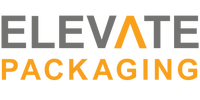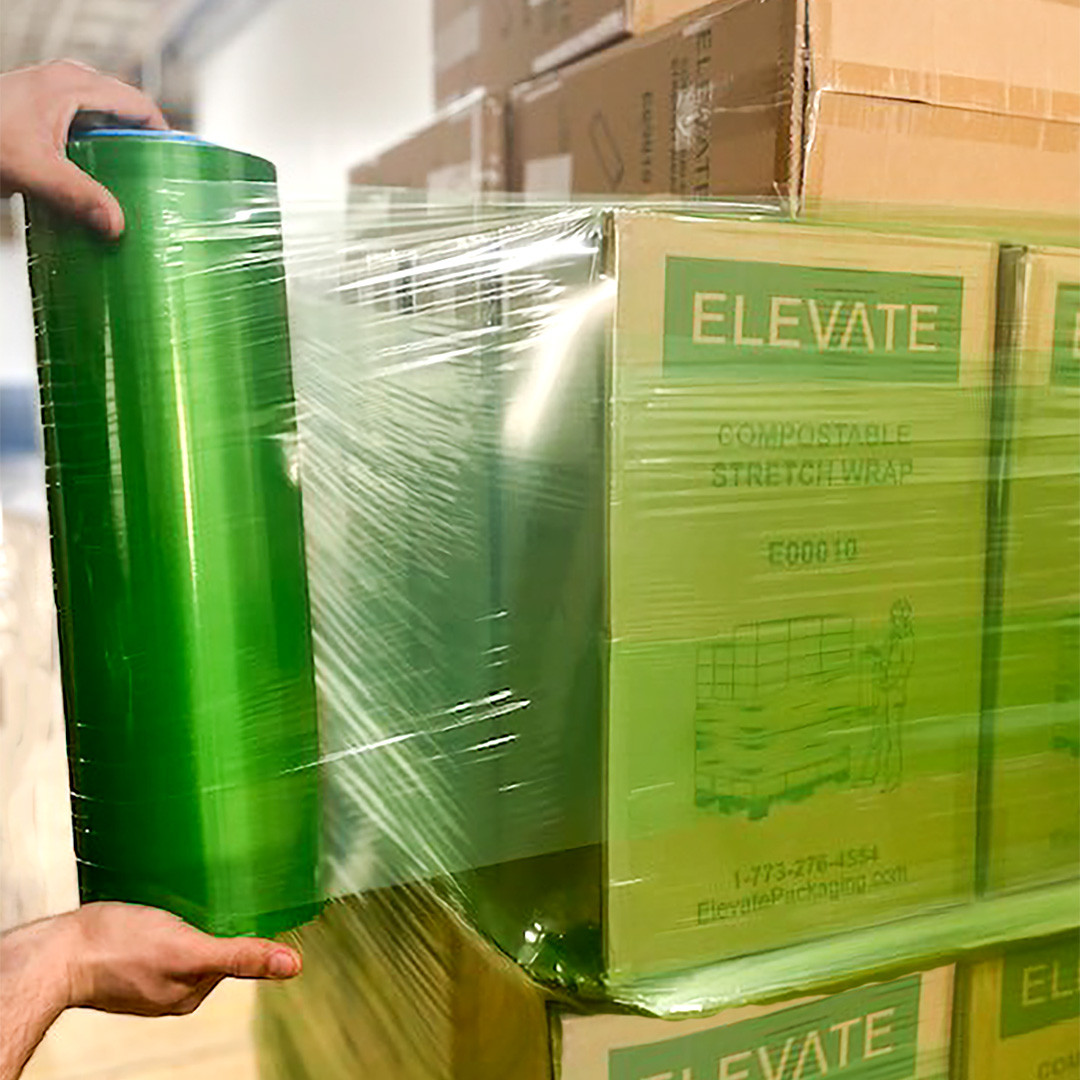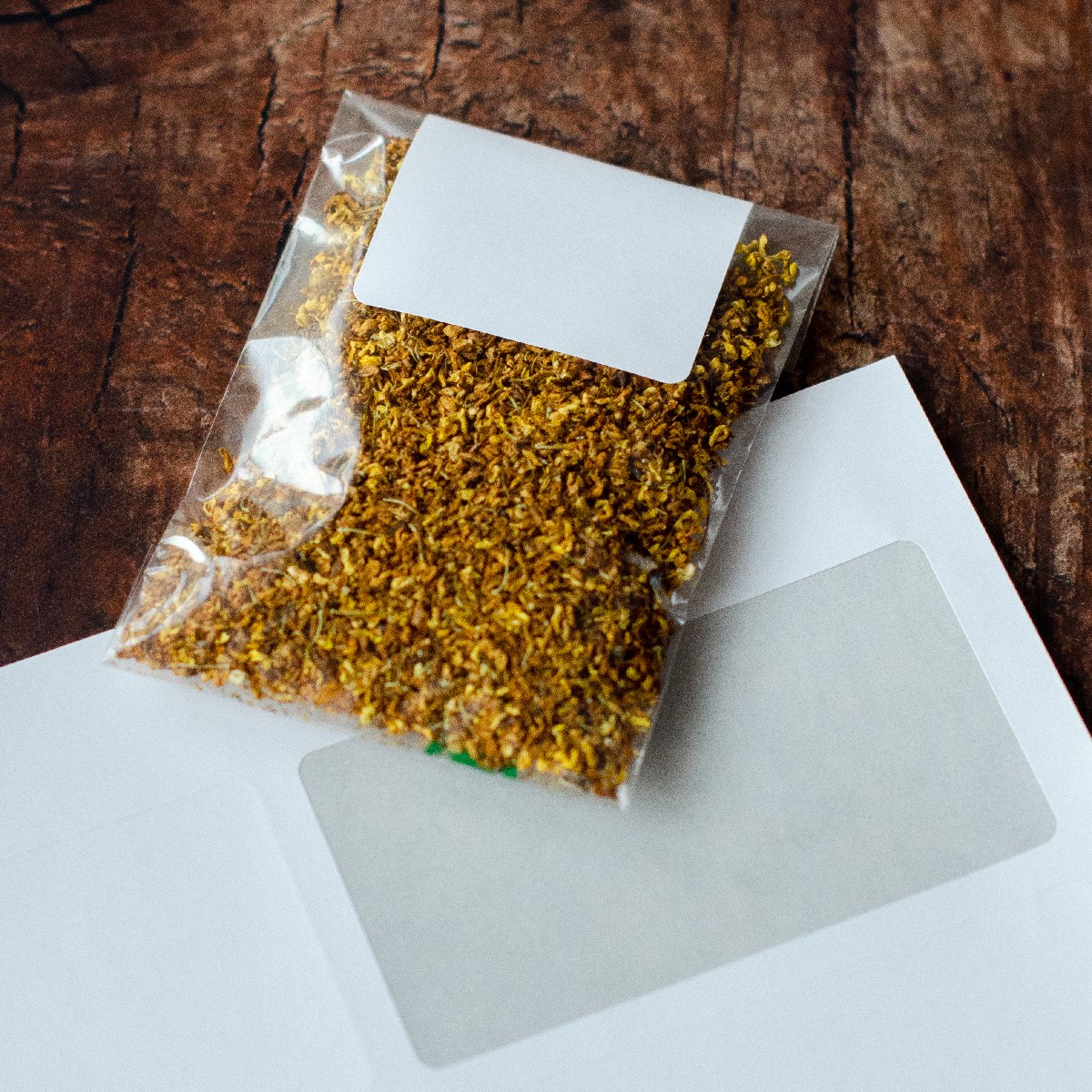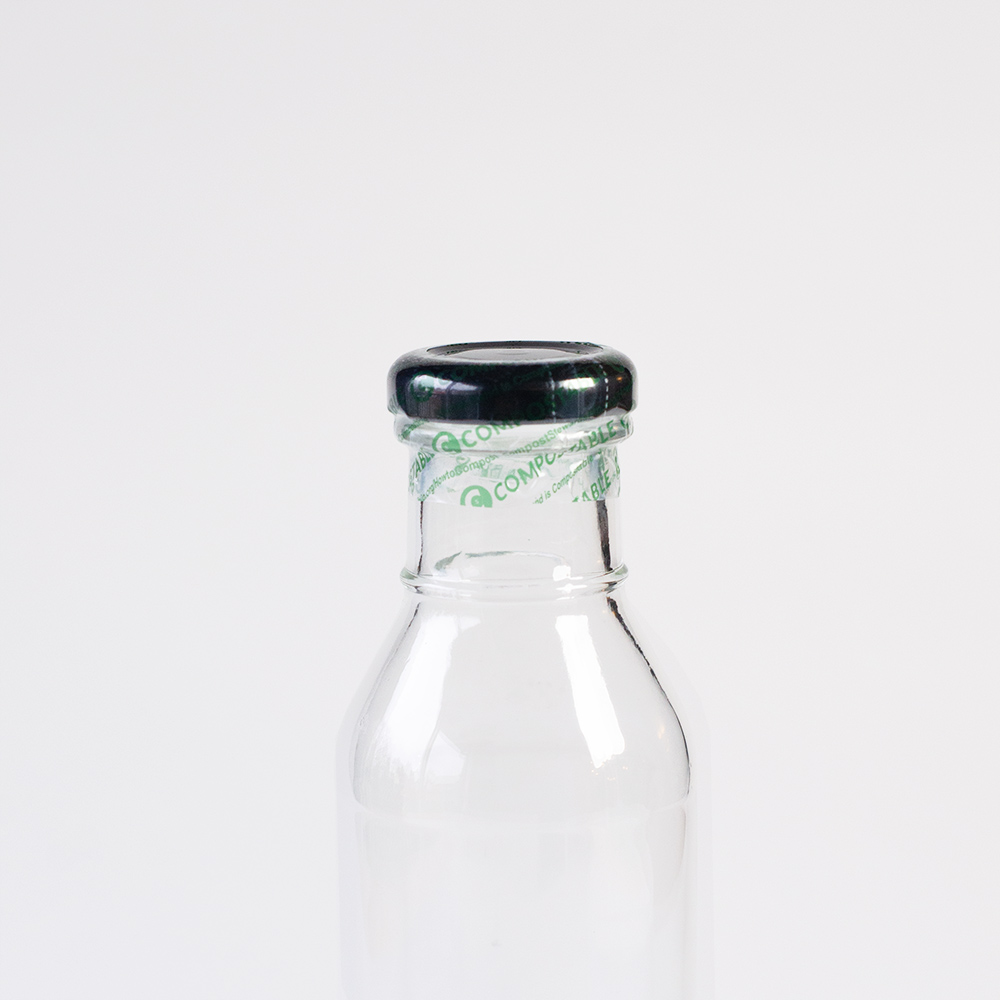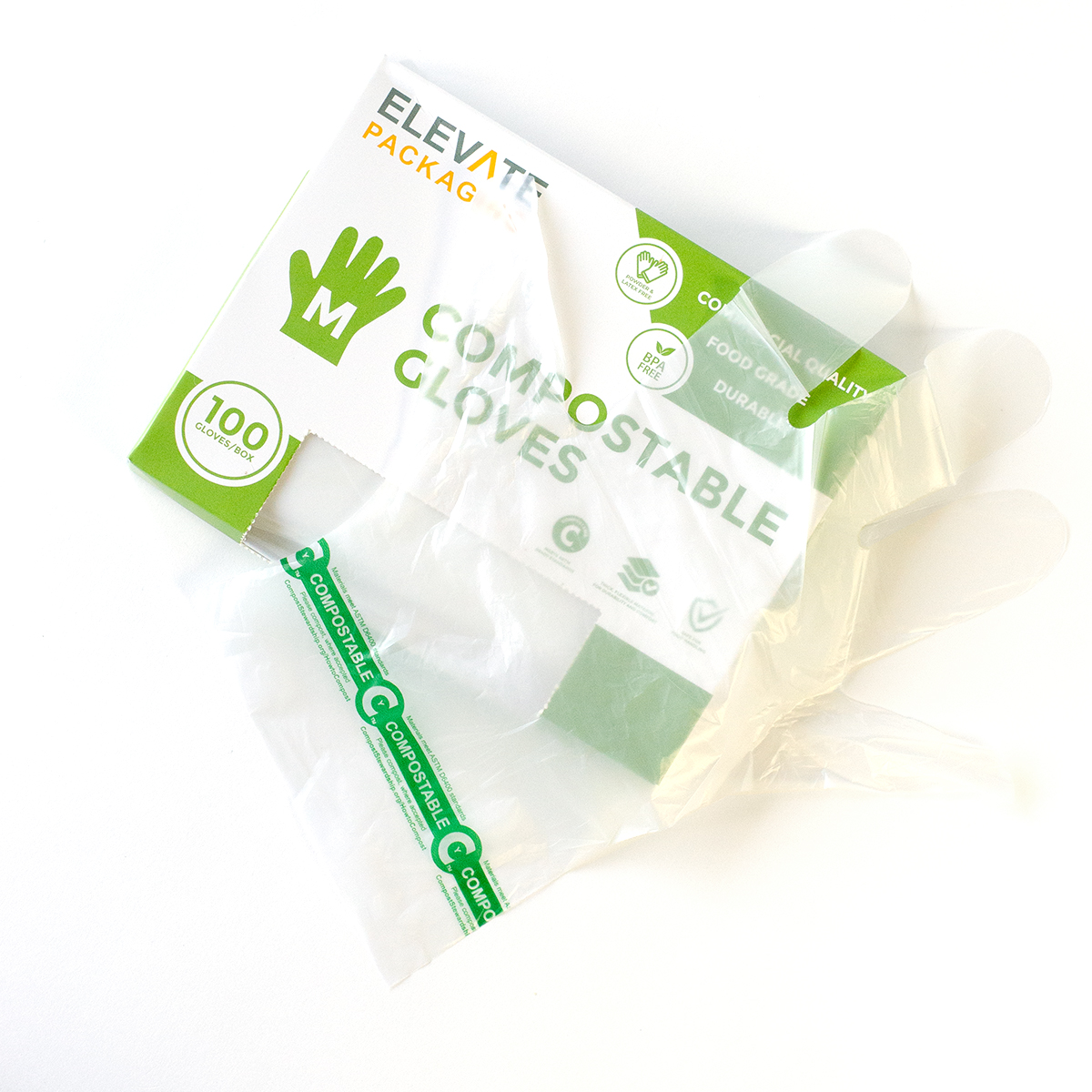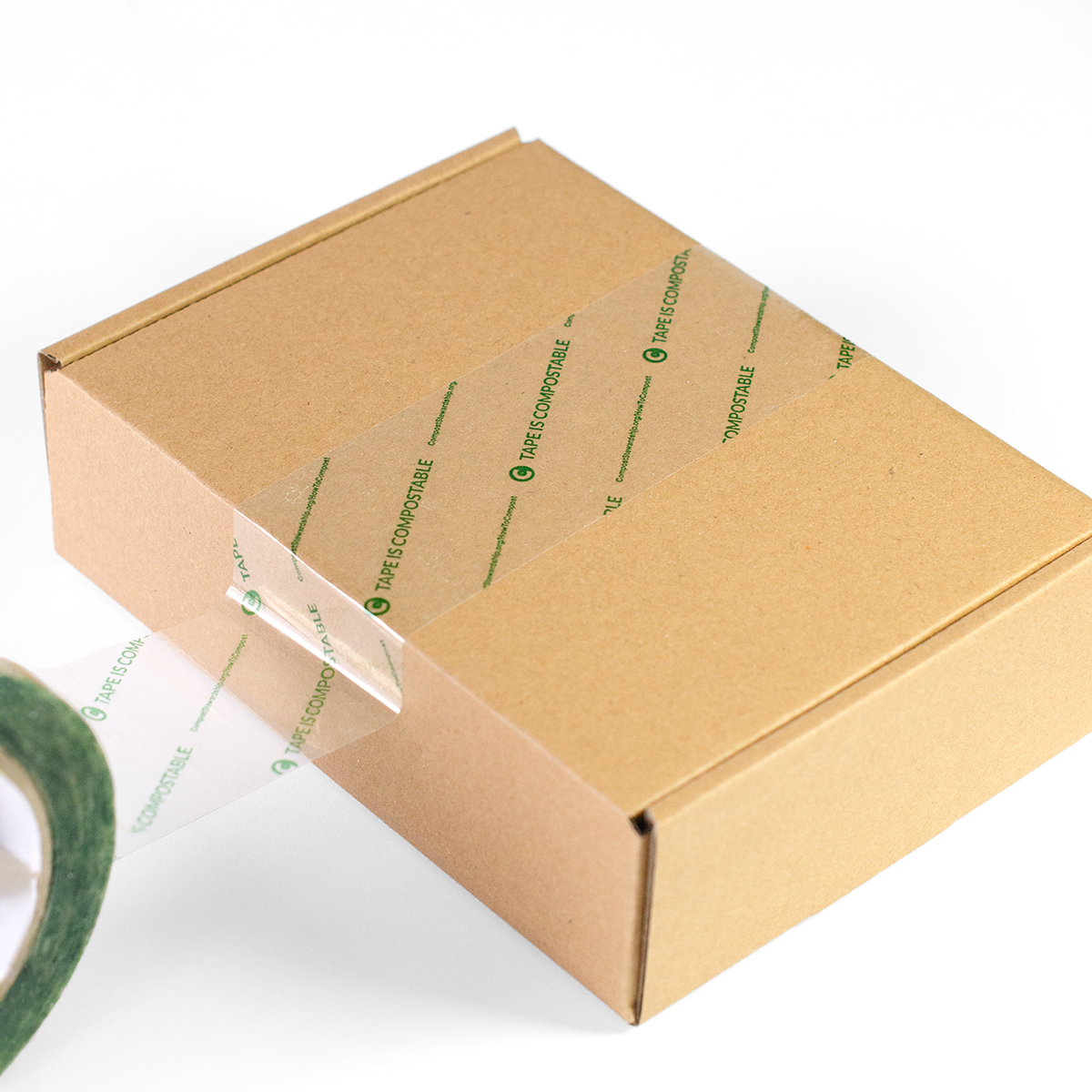Recent Posts
- Home
- Elevate Blog
- The Impact of Hidden Plastics in Business
The Impact of Hidden Plastics in Business
Posted on
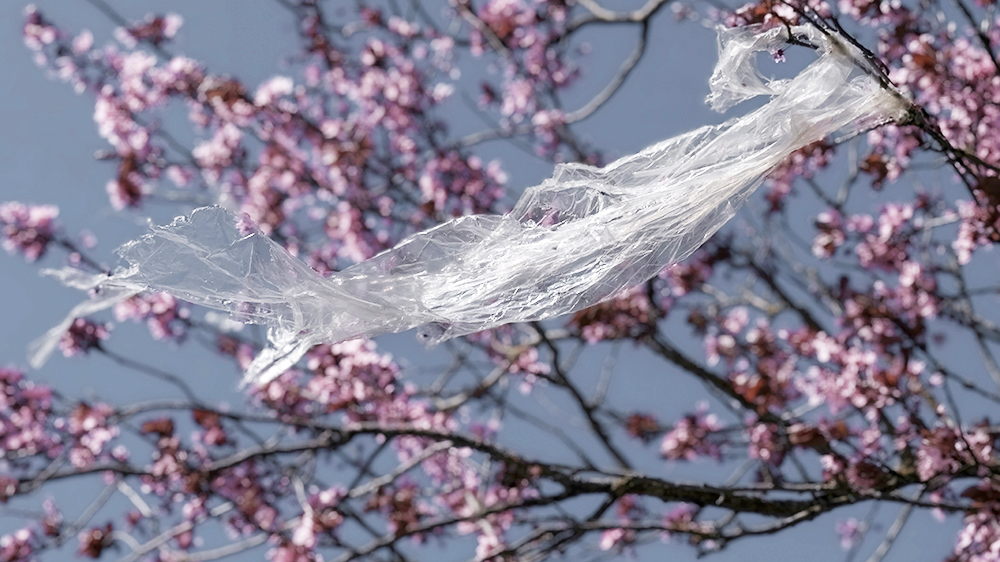
Every day, we're making positive steps towards more sustainable living. We've switched to reusable grocery bags, sipped our drinks through paper straws, and swapped plastic packaging for compostable. As conscious consumers and business owners, we're doing our part to reduce plastic waste. But have you considered the hidden plastics we often overlook?
Stickers on packages, shrink bands on bottles, gloves in food processing, warehouse pallet wraps - plastic has an uncanny knack for turning up in the most unexpected corners of our businesses.
Our efforts to eliminate the obvious culprits should be celebrated! Each change, no matter how small, is a step forward in our shared journey towards sustainability. But we also need to look closer to find the less visible forms of plastic waste.
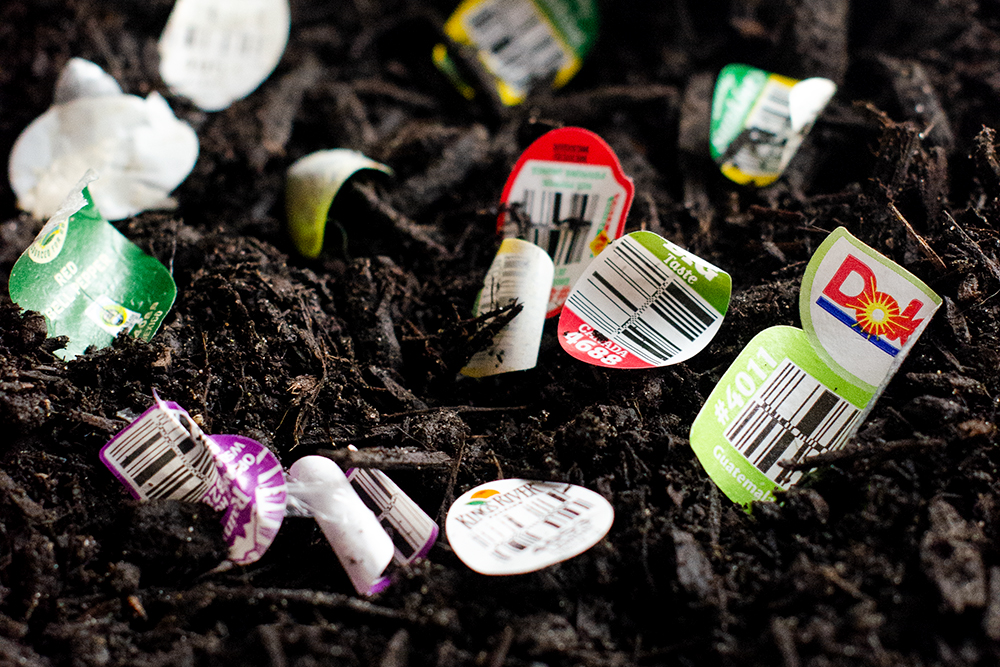 Are Produce Stickers Made From Plastic?
Are Produce Stickers Made From Plastic?
Tackling Hidden Plastics: From Shrink Bands to Pallet Wraps
We’ve previously looked at some easy ways to get started with sustainable packaging, as well as shared ideas for how small businesses can incorporate stock compostable packaging such as blank bags and pouches.
Our attention is easily drawn to larger, more visible forms of plastic waste - think water bottles, shopping bags, and food packaging. It's easy to overlook the smaller pieces of plastic such as shrink bands, stickers, or even labels on products.
Although tiny in comparison to many other plastics used in business, these 'micro-contributors' to plastic waste add up significantly over time and across millions of products. Because of their size, they are frequently ignored during recycling processes and can also end up contaminating compostable waste streams.
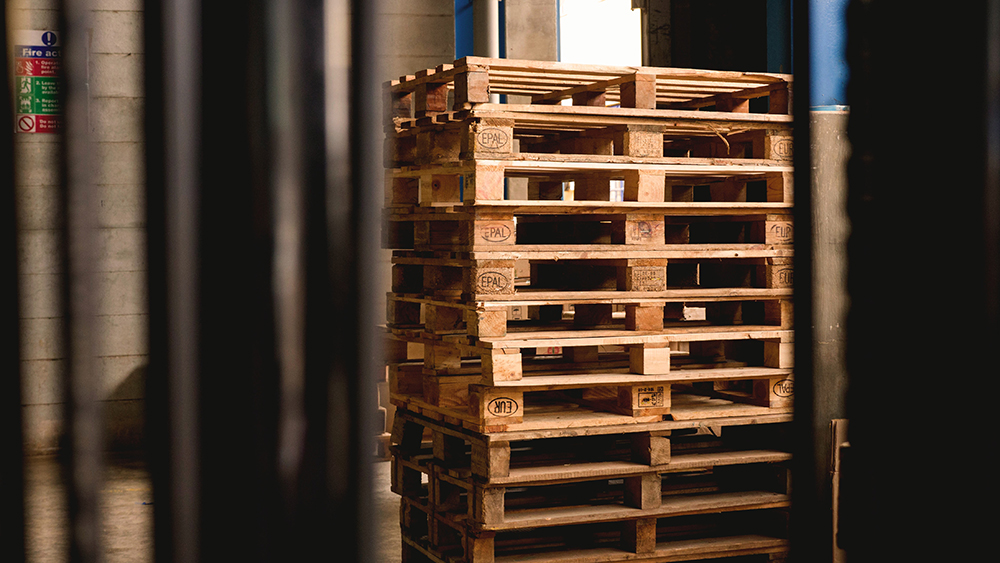
On the other end of the scale, we have larger, behind-the-scenes plastics that escape public scrutiny because they're not customer-facing.
Consider pallet stretch wrap - a critical component in warehouse operations. Used to secure goods for transport, the sheer volume of this plastic product consumed daily is enormous, and yet, it rarely features in discussions on plastic waste. Just because it's out of the public eye doesn't diminish its environmental impact!
Hidden plastics are pervasive and pose a considerable challenge in our journey towards zero-waste.
Identifying Hidden Plastics in Your Business
Identifying and avoiding plastics can significantly influence both the market and consumer habits, and your business can lead by example.
Here’s how you and your team can become champions in spotting and eliminating hidden plastics from your operations and products.
1. Educate Your Team on Sustainable Packaging
Knowledge is power. Train your team to understand and identify sustainable packaging materials and practices. This includes recognizing common pitfalls such as the difference between biodegradable and compostable and understanding the environmental impact of various different packaging options. Empower your team to make informed decisions when choosing suppliers or packaging for your products.
2. Prioritize Sustainable Material Knowledge
Familiarize your team with the most common sustainable packaging materials, such as bioplastics (e.g., PLA) and plant-based options (e.g., paper, cardboard, bamboo). Contrast these with the typical plastics found in packaging: polyethylene (PE), polypropylene (PP), and polystyrene (PS) are common plastics that lurk in packaging, often in small, overlooked elements like seals and labels. Help your team make better choices when designing product packaging or selecting goods for business use.
4. Conduct Regular Plastic Audits
Take an inventory of the plastic that your business is currently using. Creating a list of the plastic that is regularly thrown away is a great place to start making changes. Assess not only the obvious items but also delve into less visible areas, such as office supplies and packaging materials used in shipping. This comprehensive approach will help you pinpoint areas for improvement and identify viable alternatives.
For a more detailed audit, consider conducting a Life Cycle Assessment
5. Support and Partner with Sustainable Brands
Collaborate with brands and suppliers who share your commitment to sustainability. This partnership can extend beyond just purchasing decisions; it can include co-branding opportunities, joint marketing campaigns, and shared sustainability initiatives. By aligning your business with others that prioritize eco-friendly practices, you amplify your impact and encourage industry-wide change.
Turning the Tide: Compostable Alternatives for Business
"One of the cool things about being sustainable is it feeds on itself. The more you do, the more you want to do. To that end, we geek out on all the new ways we discover to be more sustainable than we were yesterday.”
- Peter Rushford, Founder/CEO, Shar Snacks
A wave of innovative solutions is helping companies rethink their plastic usage, without compromising on functionality or efficiency. Here's a look at some of the sustainable alternatives available for these hidden plastics:
Pallet Wrap
Traditional plastic pallet wrap is a significant source of non-recyclable waste. Compostable pallet wrap offers an eco-friendly solution! Compostable stretch wrap provides excellent strength and flexibility, comparable to conventional plastic wraps. After removal the pallet wrap can be composted.
Labels and Stickers
Many businesses are unaware that their stickers often contain plastic laminates, and may contribute to plastic waste. The good news is there are compostable labels made from plant-based materials! PURE Labels blank or custom printed labels are made from materials such as sugarcane paper, and are 100% compostable (including compostable adhesive!)
Shrink Bands
Shrink bands are essential for safety and tamper evidence in packaging, but most are made from plastic. Sustainable alternatives are now available! Compostable shrink bands provide the same level of protection and visibility as plastic, but without the plastic waste.
Cellophane Sheets
Many plastic films are difficult to recycle, particularly if they’ve been used to wrap food products. Compostable cellophane sheets allow you to safely and sustainably wrap your products, and can be composted after use.
Gloves
Gloves, particularly in food handling and health industries, contribute to significant plastic waste. The films are usually not recyclable, and single-use gloves are often contaminated when disposed of which causes problems in the recycling stream. Compostable gloves are an excellent alternative to traditional latex or vinyl gloves, ensuring that you can work safely without compromising on environmental responsibility.
Packing Tape
Traditional adhesive tapes are essential for packaging and securing goods. They are also unfortunately a hidden source of plastic waste! Compostable tape is a sustainable alternative, produced from renewable resources and 100% compostable. This innovative solution maintains the strength and reliability needed for packaging while significantly reducing the reliance on conventional plastics.
Choosing these alternatives not only reduces your plastic waste but also signals your commitment to sustainability to your customers. It showcases your brand as one that not just talks about sustainability but implements it in all aspects of business operations. As the demand for eco-friendly products continues to rise, now is the time to explore these alternatives and make a positive impact on our planet.
Ready to Eliminate Plastic?
Connect with a Compostable Packaging Expert:
Contact Us
*Originally posted Jul 2023, updated Feb 2024.
 Loading... Please wait...
Loading... Please wait...
